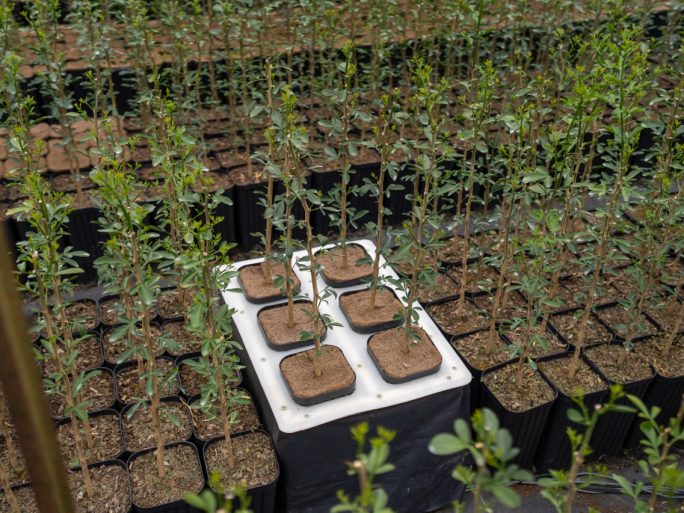Data Analysis For Sustainable Water Management

Real-time monitoring ensures efficient irrigation and fertilization, less nutrient loss and higher quality citrus trees in Queensland.
Golden Grove Nursery, a supplier of citrus trees in Queensland, Australia, has used artificial intelligence, data analytics and sensors to build a data-driven irrigation and water management system for sustainable and environmentally friendly food production. A combination of scales, soil moisture sensors and analytics measures and evaluates moisture content in the substrate of pots, as well as plant water use, to provide information for optimal irrigation and fertilization. The system includes a freestanding weather station to monitor microclimate and a suite of sensors that monitor water quality and leachate based on pH, temperature, soil moisture, weight and electrical conductivity.
Real-time data is uploaded to the cloud
Water is automatically sampled and tested every 15 minutes, as opposed to the manual process Golden Grove has performed twice a week for more than 30 years. Sensors have replaced bottles and fingers that used to be dipped in the water or placed in the flowerpot. Real-time data is now uploaded to the cloud and presented on the Hitachi Supply Chain Control Tower. This has been modified to be able to holistically measure nursery productivity by integrating sensor data, weather forecasts and biophysical models.
Generations of acquired experience, instinct and know-how are now complemented by real-time information that gives Golden Grove Nursery a data-driven competitive advantage. Within months of implementation, the nursery improved irrigation by 30 percent.
Smart agriculture for sustainable food production
Queensland is a major citrus growing region and contributes 20 percent of Australia’s citrus industry, the country’s largest fresh fruit export industry. Golden Grove produces between 200,000 and 250,000 citrus seedlings each year, supplying 70 percent of Queensland’s citrus growers and commercial orchards.
“We can now monitor the irrigation systems on a daily basis and know exactly when to irrigate to avoid root damage and ensure the nutrient mix is just right,” says Wayne Parr, head of the Queensland nursery “This has already enabled us to detect and correct over-irrigation in the winter months of 2022, and has given us much better control of irrigation this summer.”
The digital smart farming project is part of a broader sustainable horticulture program supported by the Australian government’s National Landcare Program and Hort Innovation.